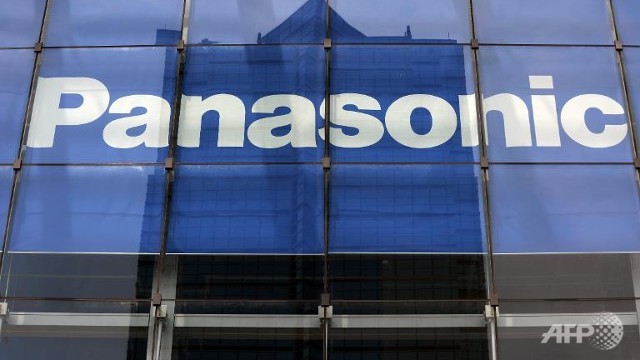Panasonic to sell birthplace of its TV business

Japan's electronics giant Panasonic plans to sell 60 per cent of the plant's 120,000-square metre site in Ibaraki, near the western city of Osaka. (AFP/Toshifumi Kitamura)
TOKYO: Japan's electronics giant Panasonic will sell the plant where it first got into the television business half a century ago as it shifts away from the money-losing division, a report said on Saturday.
The company plans to sell 60 per cent of the plant's 120,000-square metre site in Ibaraki, near the western city of Osaka, to Japan's major homebuilder Daiwa House by early next year, the business daily Nikkei said.
The price tag is estimated at 10 billion yen ($97 million).
Daiwa House is expected to build a large-scale logistics facility at the site and lease it to parcel delivery company Yamato Holdings Co., Nikkei said.
Panasonic is also considering selling the remaining 40 per cent of the site to the municipal administration of Ibaraki and its homebuilding unit, PanaHome, Nikkei said. The property could then be retrofitted for public facilities and residential use.
No officials were immediately available at Panasonic's head office to confirm the report.
The plant started producing cathode ray tube sets in 1958, and helped turn Matsushita Electric Industrial -- as Panasonic was then known -- into a global electronics company.
In 2001, Panasonic converted the facility into a plasma TV plant handling everything from making panels to assembling the sets. The company shifted most of the operations in 2005 to a new plant in nearby Amagasaki.
Panasonic said in April it posted its first annual net profit in three years and reversed a huge loss suffered in the previous 12 months as it presses on with a sweeping restructuring.
The company, along with rivals Sony and Sharp, has struggled in recent years, largely because of huge losses in their television units -- but a sharply weaker yen over the past year has helped boost their bottom line.
These firms have stopped production of plasma television panels as they continued efforts to improve their battered balance sheets.
What the stars mean:
★ Poor ★ ★ Promising ★★★ Good ★★★★ Very good ★★★★★ Exceptional
Latest News
More News
- Wages and Lunar New Year bonuses on the rise (February 09, 2026 | 17:47)
- Temporary relief for food imports as businesses urge overhaul of regulations (February 07, 2026 | 09:00)
- Opella and Long Chau join forces to enhance digestive and bone health (February 06, 2026 | 18:00)
- Vietnam-South Africa strategic partnership boosts business links (February 06, 2026 | 13:28)
- Sun PhuQuoc Airways secures AJW Group support for fleet operations (February 06, 2026 | 13:23)
- Pegasus Tech Ventures steps up Vietnam focus (February 05, 2026 | 17:25)
- The generics industry: unlocking new growth drivers (February 04, 2026 | 17:39)
- Vietnam ready to increase purchases of US goods (February 04, 2026 | 15:55)
- Steel industry faces challenges in 2026 (February 03, 2026 | 17:20)
- State corporations poised to drive 2026 growth (February 03, 2026 | 13:58)
















 Mobile Version
Mobile Version